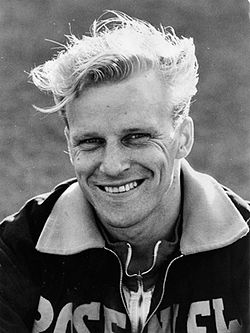Medal summary
Men
| Event | Gold | Silver | Bronze | |||
|---|---|---|---|---|---|---|
| 100 metres | 10.5 | 10.6 | 10.7 | |||
| 200 metres | 21.2 | 21.6 | 21.6 | |||
| 400 metres | 47.1 | 47.6 | 47.7 | |||
| 800 metres | 1:48.9 | 1:49.7 | 1:49.9 | |||
| 1500 metres | 3:44.8 | 3:45.9 | 3:46.0 | |||
| 5000 metres | 14:12.4 | 14:15.8 | 14:16.0 | |||
| 10,000 metres | 30:03.2 | 30:03.8 | 30:03.8 | |||
| Marathon | 2:26:14 | 2:26:37 | 2:26:40 | |||
| 3000 metres steeplechase | 8:51.0 | 8:52.0 | 8:52.4 | |||
| 110 m hurdles | 14.4 | 14.8 | 14.9 | |||
| 400 m hurdles | 51.1 | 52.0 | 52.1 | |||
| High jump | 2.11 m | 2.01 m | 2.01 m | |||
| Pole vault | 4.50 m | 4.50 m | 4.45 m | |||
| Long jump | 7.45 m | 7.31 m | 7.30 m | |||
| Triple jump | 15.47 m | 15.34 m | 15.27 m | |||
| Shot put | 16.96 m | 16.90 m | 16.49 m | |||
| Discus throw | 54.09 m | 53.06 m | 52.87 m | |||
| Hammer throw | 62.98 m | 62.23 m | 59.61 m | |||
| Javelin throw | 79.16 m | 78.38 m | 77.57 m | |||
| Decathlon | 7178 pts | 6843 pts | 6229 pts | |||
| 4 × 100 m relay | 41.2 | 41.5 | 41.8 | |||
| 4 × 400 m relay | 3:10.6 | 3:13.8 | 3:13.8 | |||
Women
| Event | Gold | Silver | Bronze | |||
|---|---|---|---|---|---|---|
| 100 metres | 12.4 | 12.5 | 12.5 | |||
| 200 metres | 25.1 | 25.1 | 25.7 | |||
| 400 metres | 56.6 | 57.8 | 58.8 | |||
| 800 metres | 2:17.3 | 2:18.2 | 2:18.5 | |||
| 80 m hurdles | 11.5 | 11.5 | 11.7 | |||
| High jump | 1.64 m | 1.61 m | 1.61 m | |||
| Long jump | 5.82 m | 5.70 m | 5.65 m | |||
| Shot put | 14.00 m | 13.06 m | 12.91 m | |||
| Discus throw | 45.40 m | 42.76 m | 42.29 m | |||
| Javelin throw | 50.85 m | 47.13 m | 47.04 m | |||
| Pentathlon | 4367 pts | 4353 pts | 4127 pts | |||
| 4 × 100 m relay | 48.2 | 48.5 | 48.7 | |||

